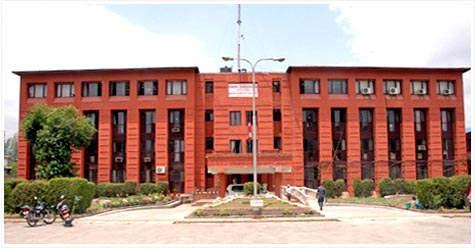Govt yields to demands of striking docs
Kathmandu, September 3
The government has agreed to revise the new penal code as per the demand of medical professionals a day after the umbrella organisation of doctors launched a strike calling for decriminalisation of “unintended medical errors” that take place while treating patients.
The Ministry of Health and Population has agreed to amend “controversial” provisions of the new penal code and send them to the Ministry of Law, Justice and Parliamentary Affairs tomorrow before they are tabled in the Parliament for approval.
The Nepal Medical Association has said Sections 230 to 239 of the new penal code are “controversial” and are aimed at criminalising acts of health professionals, such as sending doctors behind the bars, in case of death of patients. Medical professionals have said these provisions must be removed or amended. They have also demanded that assaults on medical service providers should be enshrined as “non-bailable offence” in the Medical Professionals and Health Institutions Security Act and Regulation.
The health ministry, during talks with NMA and Nepal Medical Council representatives today agreed to fulfil the demands of medical professionals.
“Amendments have been made to the new penal code as per our request. They will be submitted to the law ministry tomorrow,” NMA President Dr Mukti Ram Shrestha said. The NMA has proposed that Sections 230, 231 and 239 of the penal code be removed and Sections 232 to 238 be amended.
Medical professionals have been saying that patients victimised by negligence of doctors and hospitals should have the right to seek redress. But this should not mean doctors are sent behind the bars and imprisoned for years, they added. If medical professionals, according to doctors, are penalised as proposed by the new penal code, a culture of defining “life-saving act” as “negligence” may be cultivated, preventing doctors from taking risks, especially in remote areas, which lack proper medical equipment and diagnostic facilities.
Section 232 of the new penal code, for example, states doctors found to have caused death or maimed a patient by reckless acts during the course of treatment could be sent behind bars for up to five years and fined up to Rs 50,000. Section 230 of the code also proposes jail sentence for medical professionals.
“The demands of doctors are genuine and we are concerned about their security and professional image. But those who are negligent must be punished by law,” Joint Secretary of the Ministry of Law, Justice and Parliamentary Affairs Ramesh Dhakal said, adding, “The code can be amended if the government and lawmakers agree.”
Medical professionals have, however, decided to continue with their protest programmes until the amendments are tabled in the Parliament.
The NMA had earlier announced its plan to stay away from OPD patients on Tuesday, boycott all operations other than emergency on Wednesday, close lab and radiology services except emergency on Thursday and stay away from delivering all health services, including OPD, except emergency from Friday.
“It is not proper to shut down hospital’s administration, laboratories, OPD, and other services as chances of outbreak of epidemics and communicable diseases are high during rainy season,” said Health Secretary Pushpa Chaudhary.
READ ALSO:






